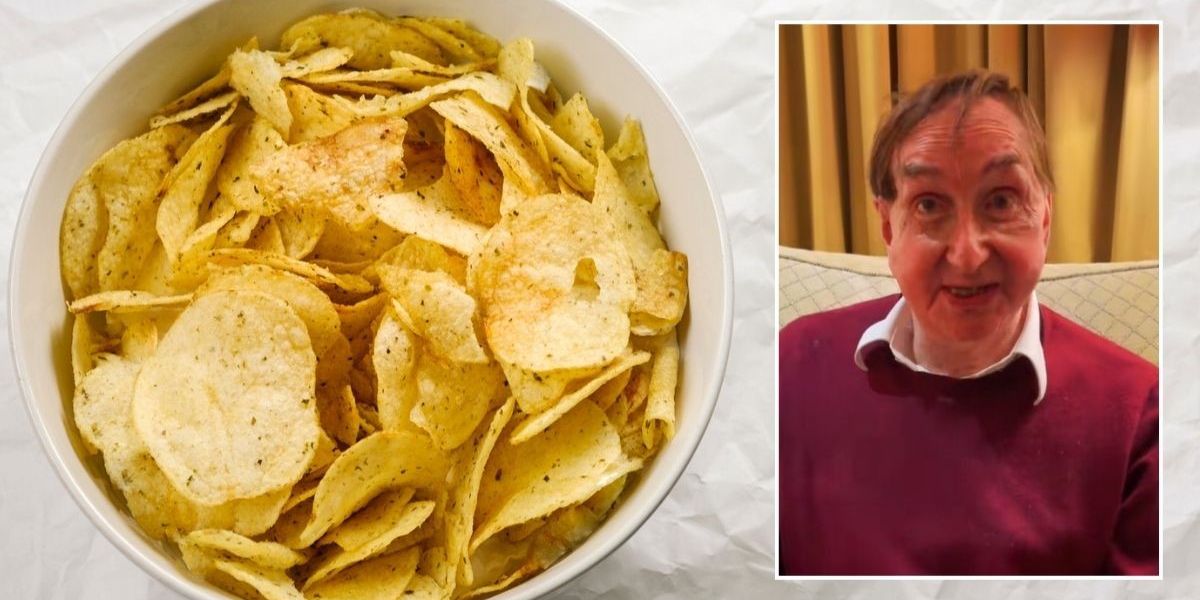Factors outside of your control such as age, gender, ethnicity and genetics, can all influence a person’s lifespan.
However, there are also several factors we can control to influence our longevity. According to a 91-year-old man who is “beating old age”, developing healthy lifestyle habits is crucial. For example, he does not consume ultra-processed foods such as crisps and chips.
Robert Eddison – also known as Eddison Wordplay – took to TikTok to share how he stays fit and healthy in his 90s.
The longevity enthusiast (who goes by @roberteddisonofficial on TikTok) revealed that while good genes are a factor, “lifestyle also plays a huge role”.
A healthy lifestyle has helped Robert stay fit and healthy at 91
TikTok / @roberteddisonofficial
Robert told viewers that he stays away from “ultra-processed” food. The British Heart Foundation stated: “Ultra-processed foods typically have more than one ingredient that you never or rarely find in a kitchen.
“They also tend to include many additives and ingredients that are not typically used in home cooking, such as preservatives, emulsifiers, sweeteners and artificial colours and flavours. These foods generally have a long shelf life.”
Examples of ultra-processed foods include ice cream, ham, sausages, crisps, mass-produced bread, some breakfast cereals, biscuits, carbonated drinks, fruit-flavoured yoghurts, instant soups, and some alcoholic drinks including whisky, gin and rum.
“Most of my food is natural and raw,” Robert told viewers, “and I never eat crisps and fries or drink Coke”. The 91-year-old did admit that he enjoys ice cream though.
An article entitled, ‘Eating ultra-processed food may shorten life span among older adults’, published by Harvard Medical School, suggested that limiting your intake of these types of foods may be wise.
An expert stated: “It’s widely known that a diet heavy in ultra-processed food is unhealthy, but it may even shorten your lifespan, according to research presented at the annual meeting of the American Society for Nutrition in July 2024.”
The research drew on data from the NIH-AARP Diet and Health Study, which looked at the diet and health of more than half a million adults between the ages of 50 to 71 for almost 23 years.
It was discovered that “those who consumed significant amounts of ultra-processed food were 10 per cent more likely to die – especially from heart disease and diabetes – during the study’s two-decade follow-up period than those who did not”.
Those who ate lots of ultra-processed foods also tended to have a “lower-quality diet” and a “greater body mass index” than those who ate fewer ultra-processed foods.
As well as sticking to a primarily natural, raw-food diet, Robert revealed that he maintains the same healthy weight and manages his diet accordingly. He has also been doing a daily workout since his 30s.
In an article published by The Lancet entitled ‘Crucial factors affecting longevity’, the experts stressed that making positive lifestyle changes can be incredibly helpful.
They stated: “High consumption of alcohol, drugs and tobacco are some of the lifestyle variables known to have toxic consequences on the organism and to greatly increase the risk of serious diseases.
LATEST DEVELOPMENTS
‘I never eat crisps and fries or drink Coke’
GETTY IMAGES
“Growing attention is being paid to dietary intake, which can be an important driver of disease in the context of excessive assumption of unhealthy fats, refined sugar and artificial food additives.
“Another important point to emphasise is the concept of an active lifestyle, which is a common notion in high-income countries – that is, a healthy lifestyle requires a sufficient amount of physical activity.”
In The Lancet Health Longevity, an active lifestyle was defined as “including physical, mental and social activities”, which speaks to the importance of maintaining social connections for brain function.
For those looking to boost their longevity, a GP shared the food swap to make now for a longer life.
If you have any concerns regarding your longevity or any other health matters, it is always best to consult your GP.



